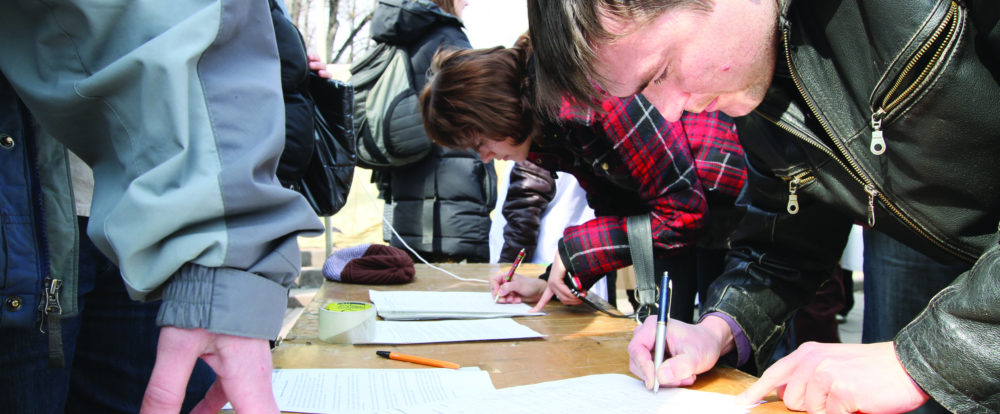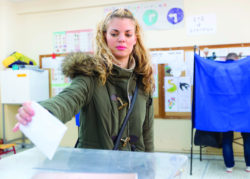 Menu
Menu
 Menu
Menu

Voters learn their poll location. Often larger communities will set up voting locations in individual neighbourhoods.

Most people over 18 can vote in elections in the municipality in which they are citizens.
The people who govern municipalities are selected by the citizens of their community. The number of elected councillors generally depends on the size of the municipality.
Urban municipalities hold general elections every four years. If the community uses the ward system, each voter casts one ballot for a candidate running for council in their ward, and one ballot for mayor. If the community does not use the ward system, voters can cast ballots for as many council candidates as there are seats on council, and one ballot for the mayor. Urban municipalities hold their general elections every four years, on the fourth Wednesday of October.
Although the reeve and councillors of rural municipalities hold office for four years, the full council and reeve are not elected at the same time. One-half of the council is elected every two years. The reeve is elected every second election. Each division in a rural municipality elects a councillor while all eligible voters in the entire rural municipality can vote for the reeve. Rural municipalities hold their general elections every two years, on the fourth Wednesday of October.
Some organized hamlets elect a three member management board that reports to the RM council. Other organized hamlets may be designated an electoral division of the RM in which they exist, so the hamlet will elect one councillor to RM council.
Like other urban municipalities, northern municipalities can be divided into wards where one councillor is elected from each ward or the councillors can be elected from the community as a whole. Mayors are elected from the community as a whole. Northern municipalities can choose to hold their general elections on the second last or last Wednesday in September or the first Wednesday in October.
Because some people only live in resort villages in the summer, they hold their general elections every four years, on a Saturday in July.
Sometimes, certain issues can be put to a direct vote. Either the local council decides to have a vote on a matter, or community members petition for a vote on a matter. This type of vote is called a plebiscite if the results are non-binding. It is a referendum if the results are binding and the local government must act on them. Although plebiscites and referendums can be held at any time, they are usually held during an election.
There are three elements to every political ideology: a critique of society, a vision for society, and a means to achieve this vision.